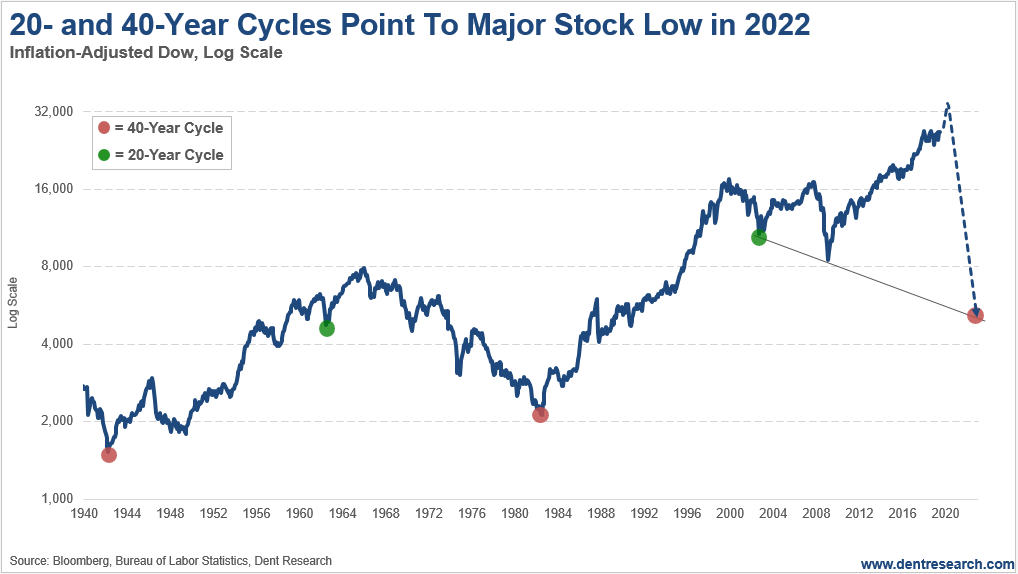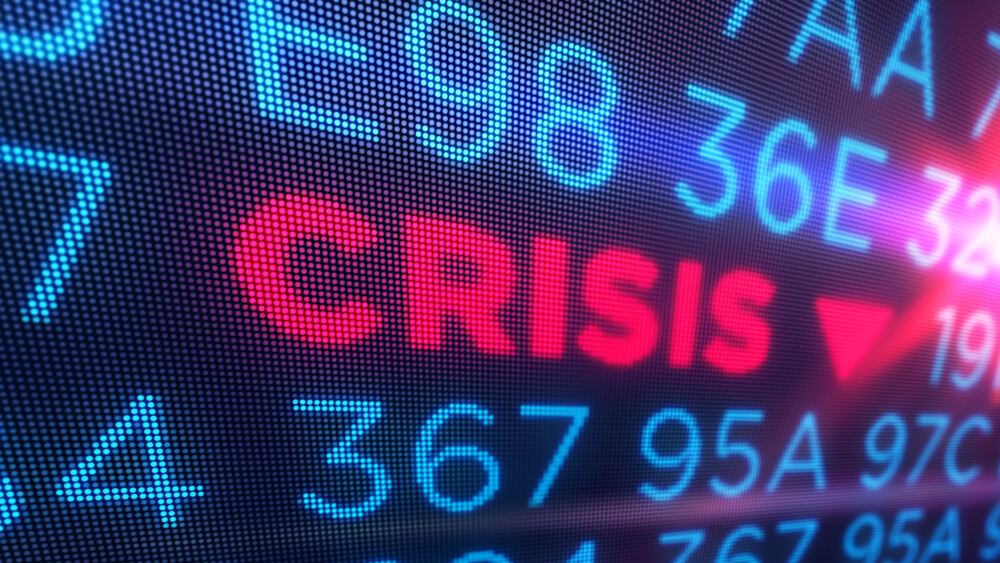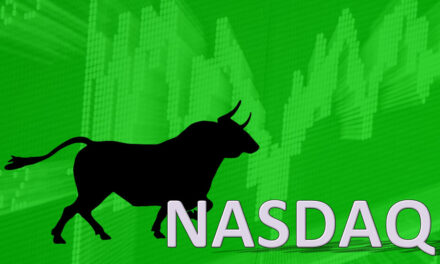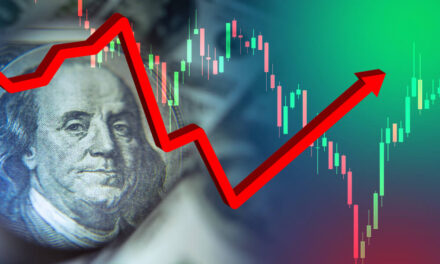There has been a lot of speculation about where financial markets and the economy are heading as the world deals with the ongoing coronavirus pandemic, but what if this is all part of a larger spending cycle that has triggered the next great stock market crash?
Uncertainty surrounding COVID-19 triggered the fastest 30% decline of the S&P 500 in history from its record-high close of 3,386 points on Feb. 19. It continued to sink 34% to its most recent low of 2,237 by March 23.
Of course, the index has fought back in the last month to within 17% of that Feb. 19 close, but it’s not out of the woods yet. At least one economist saw this 2020 stock market crash coming, though.
Harry Dent pointed to major lows that occurred in May 1942 and August 1982 for stocks, putting markets on track for another major low in 2022. But he was already ringing the bell last year that the market would start rolling downhill in early 2020, and it could be a long time before the stock market fully recovers.

Are We Witnessing the Next Great Stock Market Crash?
“I am looking for the ‘crash of a lifetime’ starting by sometime in 2020 and the ‘sale of a lifetime’ on financial assets by late 2022,” he wrote in August 2019.
And it’s not the only cycle to keep an eye on when it comes to the next great stock market crash.
“The 45-year and double 90-year Super Bubble/Great Reset Cycle also bottoms around 2022, following previous major bottoms right on cue in 1932 and 1842,” Dent said.
Dent warned that governments “have and will continue to throw the kitchen sink at this bubble to keep it going” back in August.
When the U.S. stock market crashed in February, the Federal Reserve was quick to open the monetary floodgates to reinflate share prices through March and April.
But cracks are starting to show once again as the stock market has struggled to break out and recover all of February’s losses. Many economists and analysts think markets could test March’s lows again soon.
Just last week, Banyan Hill Publishing CMT Michael Carr pointed to abysmal data in the service sector signalling another stock market crash as many small businesses will likely be forced to close their doors forever. This will in turn slow an important sector of spending and prolong what is already shaping up to be a slow economic recovery.
If the U.S. economy doesn’t ramp up as quickly as we all hope, that will put pressure on the stock market as businesses see decreased earnings, or are forced to make greater cuts.
Dent was right on cue by forecasting the start of the crash by early 2020.
“It could well be later in the year if (President Donald) Trump starts sending people money directly to get reelected,” Dent wrote, “as in his suggested payroll tax cut.”
While Trump’s projected payroll tax cut never made it into legislation, the coronavirus triggered a massive $2.3 trillion stimulus package that includes $1,200 payments to hundreds of millions of eligible Americans. So what happens when that stimulus runs dry?
Dent’s projection is that the market crash could last two to three years because the bubble created by government spending has finally burst. There hasn’t been any signal that spending will slow, either.
The Fed increased its balance sheet to a record $6.7 trillion last week and announced it will keep interest rates near zero until employment recovered drastically. Depending on how reopening states goes, there could also be more government stimulus on the way.
So are we witnessing the next great stock market crash?
It will take time to see how everything unfolds, but Dent’s projection seems to be holding up so far. Sadly, it looks like Dent’s hopes of the end of cycles may have to wait.
“If it doesn’t happen by then (2020),” Dent wrote, “we have finally died and gone to heaven… a land of endless happiness with no cycles ever again… and I will be residing permanently in hell!”
And with the cycle alive and well, that means markets won’t be down and out forever.




